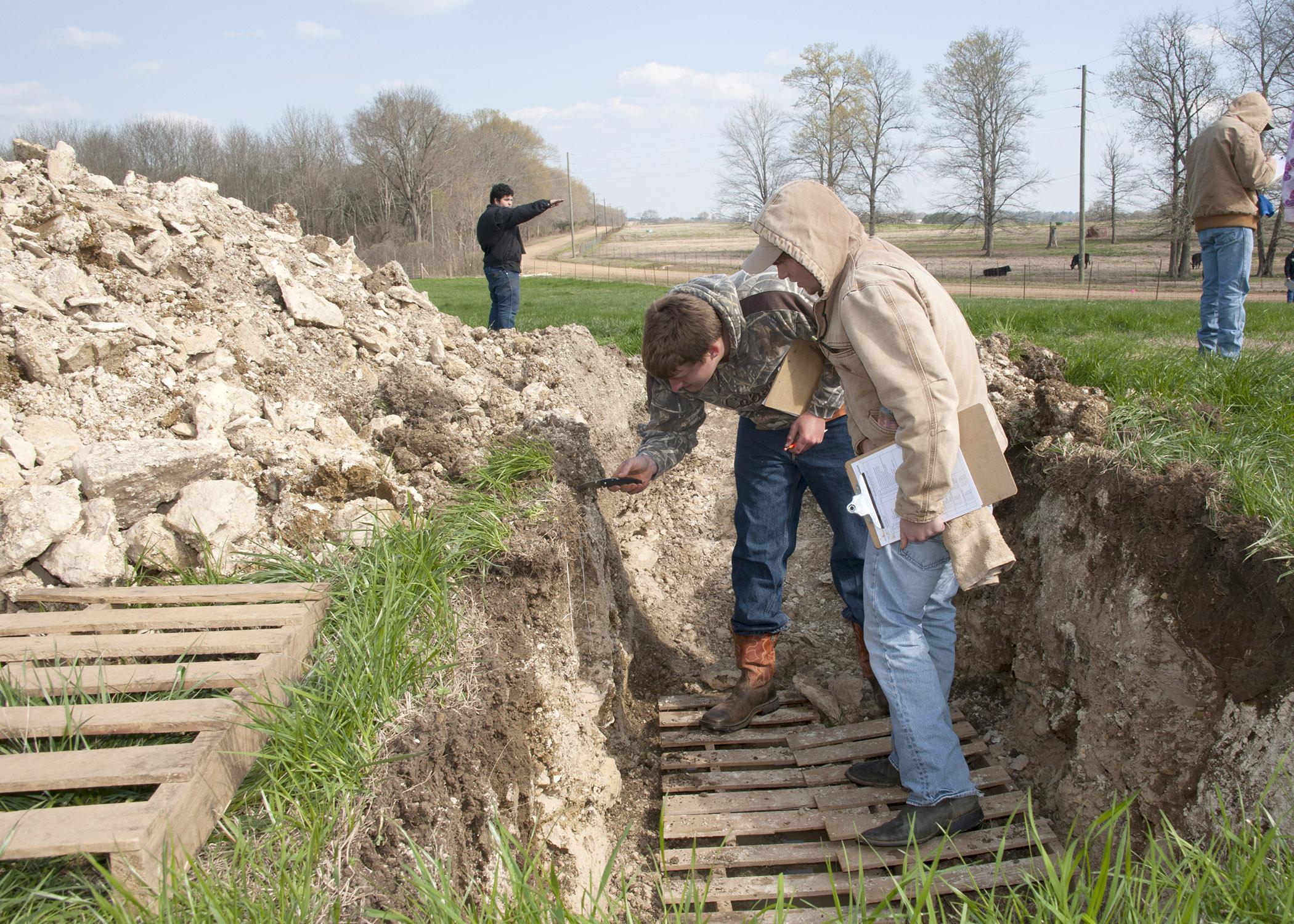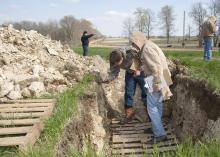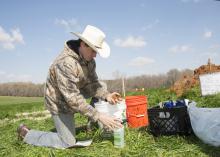Information Possibly Outdated
The information presented on this page was originally released on March 27, 2014. It may not be outdated, but please search our site for more current information. If you plan to quote or reference this information in a publication, please check with the Extension specialist or author before proceeding.
Youth learn soil issues through land judging
MISSISSIPPI STATE – Mississippi youths recently took part in a competition with skills they can take to their graves.
Home-site selection, agricultural impact and erosion prevention are among the issues students considered as they competed in the state land judging contest on March 25 on the Mississippi State University research farm. About 80 members of 4-H and FFA groups around the state evaluated the soil in holes that looked more like something they would find in a cemetery than in a pasture.
“We see people making poor choices for land use on a regular basis,” said Joe Addy, a district conservationist with the Natural Resources Conservation Service. “If every farmer and landowner applied the conservation principles that these youth are learning, they could avoid a lot of problems.”
Conservation service representatives and MSU soil specialists worked together to train teams and to develop the competition setting. Contestants examined four holes dug along a sloping hill on the Henry H. Leveck Animal Research Farm, located south of the MSU campus.
Billy Kingery, professor of plant and soil sciences at MSU, said he worked closely with the conservationists to make sure students understood basic soil properties and their impact on natural resources and land-use decisions.
“The competition centers around these four pits. Students make observations and judgments on appropriate land use and soil conservation,” Kingery said. “Rural kids don’t usually think about the weight of a tall building on land, but a water tower is also pretty heavy, and the soil underneath is incredibly important for support.”
One recent training session that stands out in Kingery’s mind was in Iuka. He traveled to the Tishomingo County town to conduct team training during the students’ spring break.
“This was a very dedicated team that wanted to learn the skills they needed to do well in this competition,” he said. “The team also includes a wide range of ages.”
That team’s youngest participant, Cassidy Hutcheson, won the high-point award in the competition’s junior division. Her 4-H youth agent, Danny Owen, said Tishomingo County always has a handful of students with an interest in land judging.
“We see land judging as a skill that these students will use the rest of their lives,” Owen said. “Home-site evaluations are one of the most important aspects of the competition.”
Unlike other 4-H judging competitions, students who take part in land judging do not have to provide oral reasons for their decisions. Instead, they fill out evaluation forms about the designated sites they consider.
“This is one of the easiest contests to compete in but one of the hardest to do well in,” Owen said. “It challenges them to work harder at learning the material and improving their observation skills.”
Tishomingo County 4-H member Robert Smith said he did not mind spending part of his spring break studying for the competition. Natural resources and conservation topics appeal to the future forestry student.
“It’s a lot of fun learning how soil functions,” Smith said. “I just love being outdoors, too.”




